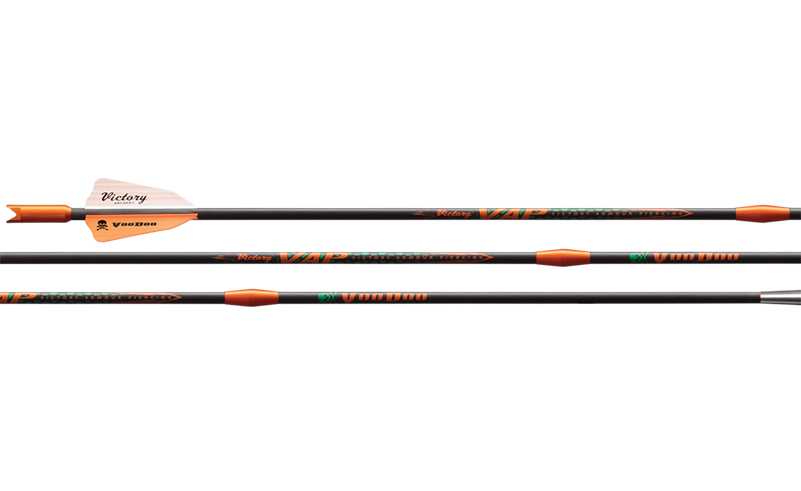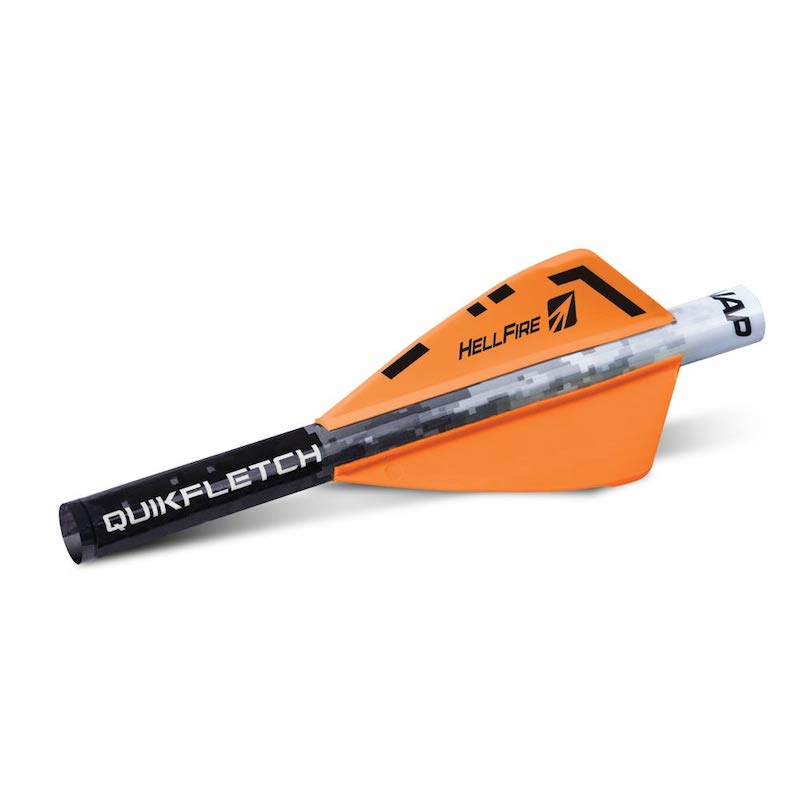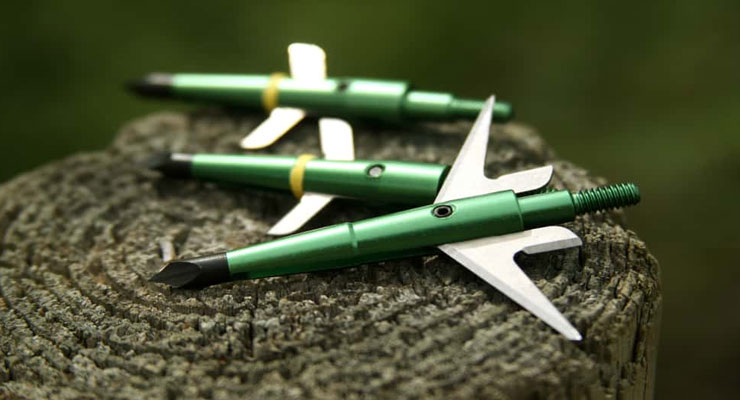OutdoorHub
Choosing the Best Bolts for Your Crossbow
Crossbows have risen in popularity in a short amount of time. Whether you like them or not, they do one thing extremely well – get more people out hunting. This rise in crossbow use has spurred a tremendous growth in the technology and materials used in construction, resulting in increases in speed and accuracy. One of the most important elements in making your choice in crossbows accurate, effective and above all, safe, is selecting the right crossbow bolt for you.
The terms ‘bolts’ and ‘arrows’ often get confused with one another, but they are not interchangeable. A bolt is designed to be used with a crossbow while an arrow is designed to be used with a regular bow. Most crossbow bolts measure anywhere from eighteen to twenty-two inches in length. The length that you will need will be determined from the specific crossbow that you own. You’ll find the required or recommended bolt length in the manual from the manufacturer of your bow. Aside from that, however, you still need to know what to look for in a crossbow bolt, because as with most things, not all crossbow bolts are created equally. Here are some tips in helping you choose the best bolts for your crossbow.
What materials should bolts be made from?

The shaft of a hunting crossbow bolt should be made of aluminum, carbon fiber, or a combination of the two. Out of these, aluminum is by far the cheapest, and it’s also fairly durable upon impact. However, it can also bend easily, and once a bolt (or an arrow) is bent, it has no value left to you. Easton has been producing their XX75 bolts for about as long as there have been commercial crossbows. These bolts have set the standard for aluminum arrows.
Carbon fiber is the overall best choice for crossbow bolts but it is also the more expensive. It is incredibly durable and flies very well. Penetration is also much better with carbon fiber. We are partial to Carbon Express Maxima bolts, but there are many options. Gold Tip has been making carbon arrows and bolts for a long time and has a strong following.
There are some companies like Easton, that produce a bolt that is a combination of carbon and aluminum. These bolts have the qualities of both materials and can make a huge improvement in your speed, durability and accuracy. We’ve tested Easton’s Full Metal Jacket bolts and have come away extremely impressed.
Other materials you may come across are fiberglass and in some rare circumstances, wood. These two types of bolts are not safe for modern crossbows. You may find some slower, not-for-hunting crossbows that use fiberglass, but please do no use them in a modern crossbow.
How important is weight in selecting a bolt?
The next most important quality to look in crossbow bolts for after materials used for the bolts’ is the weight.The weight is important because when the bolt is too light, it will not penetrate or inflict as much damage upon impact. But on the other hand, if it’s too heavy your range will also be significantly limited. What you need to do is look for a bolt that offers the right balance.
One of the newest trends is a micro-diameter bolt, made from dense carbon fiber. The standard out on the market is the Victory VooDoo with an aluminum sleeve over a section of the shaft to allow it to work with almost any crossbow. These bolts fly extremely well, and have better penetration than many other bolts.
The best way to find a crossbow bolt with the right weight will again be to refer to the manufacturer’s recommendations or requirements, which should be found in your owner’s manual.
Are bolt fletchings the same as arrows?

In general, most crossbow bolts have fletchings, or vanes similar to arrows. Fletching/vanes refer to the wings or feathers that are found at the back of the bolt. The purpose for fletchings is to stabilize the bolt’s trajectory when it is fired. Vanes for bolts tend to be longer and not as tall, like Bohning Archery’s 3.5 inch bolt vane. The best crossbow bolts will have three fletchings that are built out of a plastic material. As far as length is concerned, the longer your shaft, the longer the fletchings will need to be.
Are all nocks the same?
The nock is the point where the string makes contact with the bolt. Unlike a vertical bow and arrow, the not for a bolt generally does not attach the string to the shaft. However, most every nock engages the safety mechanism of the crossbow, meaning the bow will not fire until the nock is properly seated.
There are two primary kinds of nocks to choose from: a flat nock and a half moon nock. The difference between the two is that the half noon nock requires you to align it with the string of the crossbow before you can fire. There is a third type, the Omni Nock, which was developed by TenPoint for some of their crossbow models. Different manufacturers will have different recommendations as to which you should use for their crossbows.
Just as with vertical bows, there are several lighted nock options for crossbows. You can buy lighted nocks separately, or buy pre-assembled lighted bolts ready to go. Lighted nocks make it easier to track the bolt’s flight in low light conditions, They can also help is tracking the bolt after the shot.
Which broadheads should I use?

If you are going to be using your crossbow for hunting, you will most likely want the bolts to be an expandable blade broadhead. We’d suggest the Swhacker two-blade crossbow broadhead. We’ve used these for a long time and have harvested a lot of deer with them. They are reliable and make tracking and finding your animal after the shot very easy. An expandable blade broadhead will cause the maximum amount of damage once it reaches the animal in order to lend itself to the cleanest possible kill.
Other options include the fixed-blade broadhead, like the G5 Striker V2, and removable blade broadheads like a Muzzy 225 (the names are pretty self-explanatory as to what they are), but the expandable blade broadheads will have the greatest velocity and the greatest accuracy.
Cover photo: Shutterstock/Lex3301
The post Choosing the Best Bolts for Your Crossbow appeared first on OutdoorHub.


